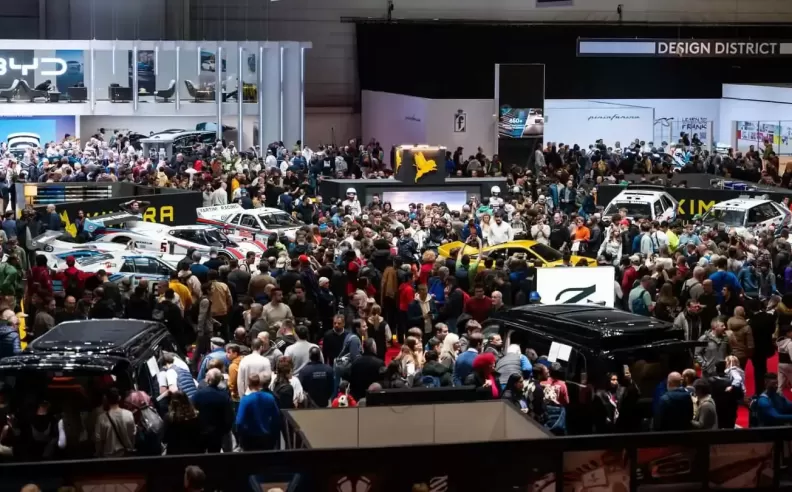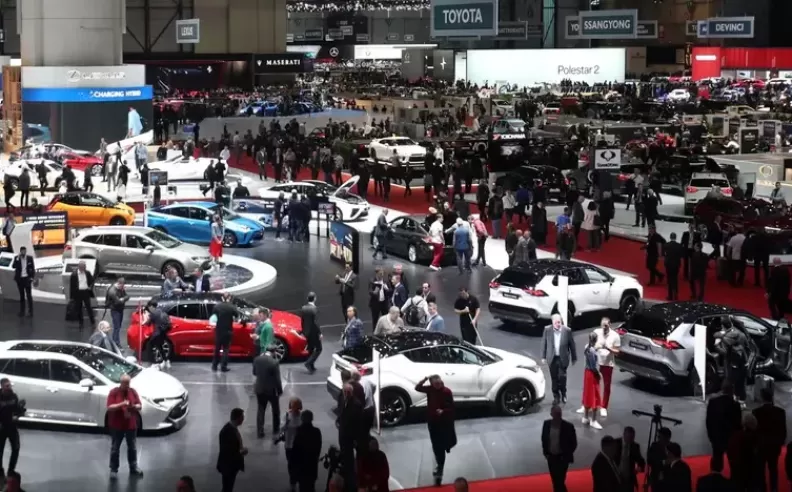
The Geneva Motor Show, an iconic event in the automotive world for over a century, has come to an end. Organizers announced the decision on Facebook, citing "ongoing industry challenges and competition." After 119 years, the show that once defined automotive excellence in Switzerland is no more. The show will continue its companion event in Qatar, which debuted in 2023 and is set to return in November 2025.

Since its inception in 1905, the Geneva Motor Show has been a stage for some of the most legendary vehicles in automotive history. Among its many highlights were the debuts of the Jaguar E-Type, Porsche 917, Audi Quattro, and Lamborghini Countach LP500 concept. The event also witnessed the unveiling of the Ferrari LaFerrari, a model that has since become a modern classic.
The motor show had been a barometer of the automotive industry's health and innovation, showcasing the latest in technology and design. However, it faced significant obstacles in recent years. The COVID-19 pandemic led to the cancellation of the event for four consecutive years, from 2020 to 2023. Even when the show returned in 2024, participation was meager, with only a few automakers in attendance.
The shift to Qatar marks a significant change in the show's history. While it ensures the continuity of the Geneva Motor Show's spirit, the move highlights the shifting dynamics of the global automotive industry. The Qatar event represents a strategic pivot to a region with burgeoning interest in automotive innovation and luxury vehicles.
Auto shows worldwide have been grappling with similar challenges. The North American International Auto Show (NAIAS) in Detroit, for instance, moved from January to the summer in an attempt to attract more attendees. Despite this effort, NAIAS organizers recently decided to return to the original January schedule starting in 2025, putting the event back in direct competition with the Consumer Electronics Show (CES).
The decline of traditional auto shows reflects broader changes in how automakers engage with their audiences. Increasingly, car manufacturers are opting for standalone events or digital launches to unveil new models. These formats offer more control and direct engagement with potential customers without the logistical challenges and costs associated with large-scale auto shows.
For automotive enthusiasts and industry professionals, the end of the Geneva Motor Show in Switzerland is undoubtedly a poignant moment. The show was more than just a venue for car debuts; it was a cultural and historical touchstone that celebrated the art and engineering of automobiles. As the industry evolves, the legacy of the Geneva Motor Show will continue to influence how cars are showcased and celebrated, even if its traditional format has come to an end.
The future of auto shows may look different, but the excitement and passion that fueled events like the Geneva Motor Show will persist in new and innovative ways, reflecting the ever-changing landscape of the automotive world.

Wael is an automotive content writer specializes in creating written content for Motor 283. Producing a wide range of content, including blog posts, articles, product descriptions, reviews, and technical guides related to cars, trucks, motorcycles, and other vehicles, with an unprecedented passion for cars, and motorcycles.
